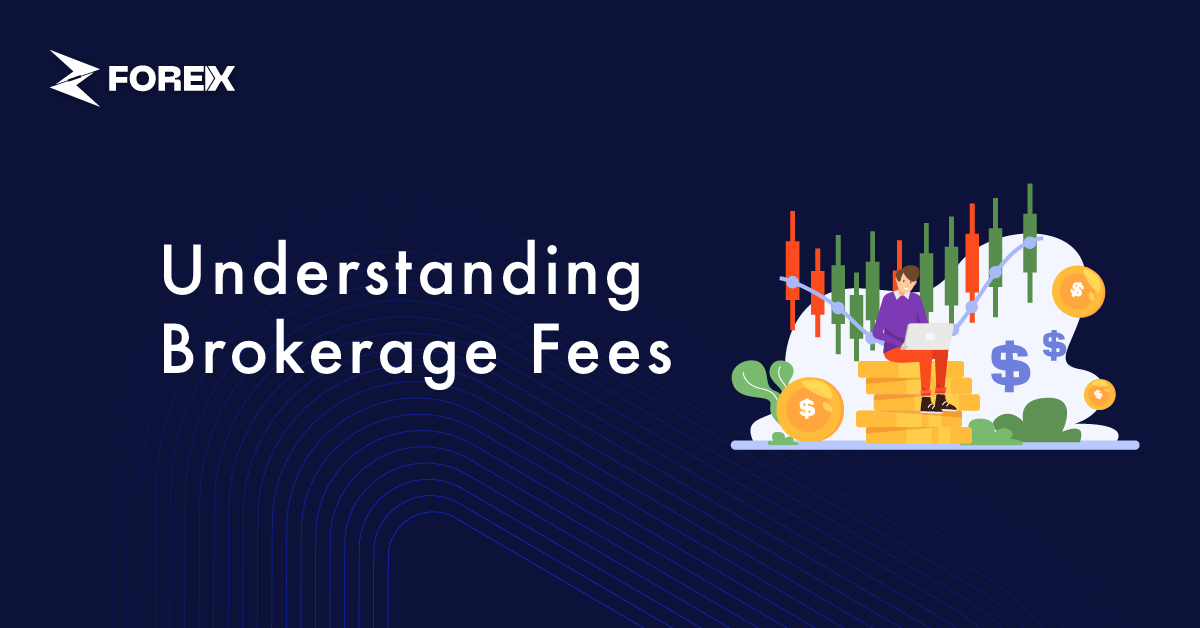
The forex market is a platform that allows traders to buy and sell currency pairs. To carry out these trades, you need to use intermediary institutions called brokers.
One important aspect to be aware of is brokerage fees. Brokers charge various fees for their services, and understanding these costs can impact your overall profitability.
In this article, we will explore what brokerage fees are, the different types, and how they can affect your investments.
Brokers charge different fees for their services, which can be categorized into several types:
Spread is a common brokerage fee and is often the first cost investors encounter. It is the difference between the bid (buy) price and the ask (sell) price, representing the broker's revenue source. Spread rates can vary based on currency pairs, market liquidity, volatility, and broker policies.
Some brokers offer fixed spreads, which provide consistency but may be wider, while others use variable spreads that fluctuate with market conditions. Fixed spreads can be stable during volatile periods while variable spreads might be narrower in stable conditions but can widen during market fluctuations.
Check the Top Zero Spread Brokers in 2025.
Some brokers charge a fixed commission fee either in addition to or instead of the spread. These fees are generally based on trading volume.
For instance, a specific commission fee might be applied for each lot traded. ECN accounts, often preferred by experienced traders, usually include this type of fee. The commission rate may vary with trading volume; higher volumes may lead to lower rates.
In forex trading, where short-term positions are common, holding positions overnight can cause a fee called a swap. This fee is essentially interest charged or paid based on the currency pair.
The swap rate is influenced by interest rate differences between the two currencies in the pair. A positive swap means you will earn interest, while a negative one means you will pay it.
Fees related to depositing and withdrawing funds can vary based on the payment method. Transactions via credit or debit card may incur specific fees, while bank wire transfers generally involve higher charges. Electronic wallets usually offer faster transactions and lower fees.
An inactivity fee might be charged if there are no transactions on an account for an extended period. This fee typically applies after 6 to 12 months of inactivity and can be a fixed amount or a percentage of the remaining account balance.
Several factors can affect brokerage fees in the forex market:
The fee structure varies depending on the type of broker. For example, market maker brokers typically earn revenue from spreads alone, while ECN brokers may charge both spreads and fixed fees.
The volume of trades executed can influence fees. Higher trading volumes often result in reduced spreads or commissions. Some brokers offer specialized accounts with lower fees for higher volume traders.
Liquidity and volatility impact brokerage fees. In markets with lower liquidity or during periods of high volatility, spreads tend to widen, increasing costs.
Different currency pairs have varying levels of liquidity and volatility, affecting spread rates. Major currency pairs (such as EUR/USD or GBP/USD) generally have narrower spreads compared to exotic pairs, which may have wider spreads.
Here are some strategies to help minimize brokerage fees:
1. What is a brokerage fee in forex trading?
Brokerage fees are costs associated with trading through a broker, including spreads, commission fees, overnight fees (swaps), and transaction fees for deposits and withdrawals.
2. How does the spread affect my trading costs?
The spread is the difference between the bid and ask prices of a currency pair and is a key component of trading costs. A wider spread increases costs, while a narrower spread reduces them.
3. What is the difference between a fixed and a variable spread?
A fixed spread remains the same regardless of market conditions, while a variable spread changes with market liquidity and volatility. Fixed spreads are more predictable but might be wider, while variable spreads can be narrower when things are calm but wider when the market becomes volatile.
4. How do commission fees work in forex trading?
Commission fees are charges based on trading volume. Brokers might apply a fixed fee per lot or a percentage of the trade size. Higher trading volumes can lead to lower commission rates, benefiting frequent traders.
5. What is a swap, and how does it impact my trading costs?
A swap is the interest paid or earned for holding a position overnight. Depending on the currency pair and prevailing interest rates, a swap can be positive (adding to your account) or negative (being taken from your account), affecting the overall cost of maintaining a position.
6. How can I minimize fees associated with deposits and withdrawals?
Fees for deposits and withdrawals can vary based on the payment method. Using methods with lower fees, such as electronic wallets, can help reduce transaction costs compared to credit card payments or bank wire transfers.
 Silver Rally Ahead? Supply Deficit Meets Rising Demand
Silver Rally Ahead? Supply Deficit Meets Rising Demand
A new silver rally may be forming as supply deficits deepen and China’s demand grows. Here’s what is driving the momentum.
Detail Fed Rate Cuts 2026: How to Position Now
Fed Rate Cuts 2026: How to Position Now
Fed rate cuts in 2026 could reshape markets. See expectations, asset impact, and positioning strategies for bonds, gold, stocks, and USD.
Detail Analyzing the U.S. Labor Market Outlook for 2026
Analyzing the U.S. Labor Market Outlook for 2026
Year’s first jobs report looked reassuring. A closer breakdown, however, tells a more layered story about the direction of the labor market.
DetailThen Join Our Telegram Channel and Subscribe Our Trading Signals Newsletter for Free!
Join Us On Telegram!